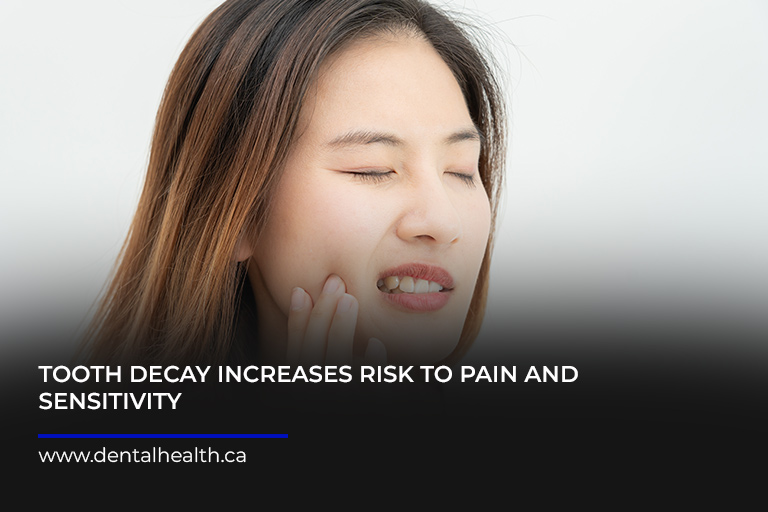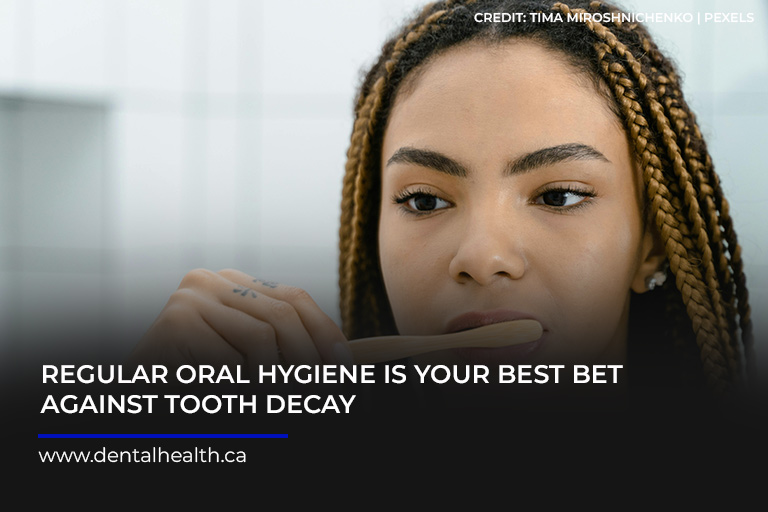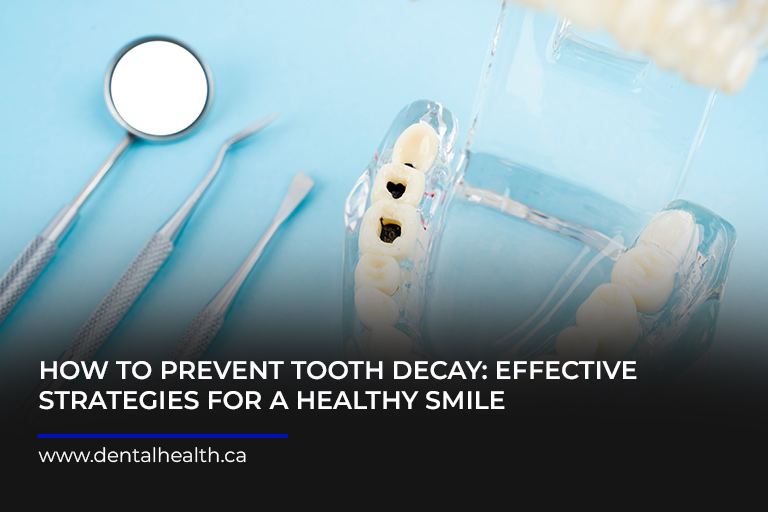Tooth decay, also known as dental caries, is a prevalent oral health concern that can affect individuals of all ages. This condition arises when bacteria residing in the mouth metabolize sugars from food and drinks, producing acids that gradually erode the protective enamel layer of teeth. As the enamel weakens, cavities or holes form, potentially leading to pain, infection, and even tooth loss. Preventing tooth decay is not only about avoiding discomfort but also fundamental to preserving a healthy smile, ensuring proper chewing function, and safeguarding overall well-being.
This comprehensive article explores the causes, consequences, and, most importantly, the effective strategies for preventing tooth decay. By incorporating these actionable tips into your daily routine and seeking regular dental care, you can maintain a radiant and healthy smile for years to come.
Causes of Tooth Decay
Understanding the factors contributing to tooth decay is pivotal in adopting preventive measures. This intricate process involves a complex interplay of several elements, including:
- Poor Oral Hygiene: Inadequate brushing and flossing techniques allow plaque, a sticky biofilm teeming with bacteria, to accumulate on teeth and along the gum line. The bacteria within plaque metabolize sugars, generating acids that demineralize tooth enamel, initiating the decay process.
- Frequent Snacking and Sugary Beverages: The consumption of sugary foods and drinks, particularly between meals, provides a constant source of fuel for acid-producing bacteria. Sticky candies, sugary sodas, and even dried fruits can adhere to teeth, prolonging the exposure to harmful acids.
- Dry Mouth (Xerostomia): Saliva acts as a natural defense against tooth decay. It helps neutralize acids, washes away food debris, and remineralizes enamel. Reduced saliva flow, whether due to medications, medical conditions, or aging, increases the risk of cavities.
- Acidic Foods and Drinks: Frequent ingestion of acidic foods and drinks high, including carbonated drinks, citrus fruits, and sports drinks, can directly undermine tooth enamel and increase its susceptibility to decay.
- Genetics and Tooth Anatomy: Some individuals may inherit a predisposition to tooth decay due to factors like tooth shape, enamel composition, and saliva flow. Deep grooves and pits on tooth surfaces can also trap food particles and bacteria, making them vulnerable to decay.
Consequences and Risks of Tooth Decay

Untreated tooth decay can have far-reaching consequences that extend beyond oral health. Recognizing the potential risks underscores the importance of prioritizing preventive care. These consequences can include:
- Pain and Sensitivity: As tooth decay progresses, it can trigger toothaches, sensitivity to hot or cold temperatures, and discomfort while chewing. These symptoms can significantly impact daily life and overall quality of life.
- Infection and Abscess: In severe cases, tooth decay can penetrate the inner layers of the tooth, leading to infection and abscess formation. This can cause severe pain, swelling, and even systemic health problems if the infection spreads.
- Tooth Loss: Extensive tooth decay can weaken the tooth structure to the point where extraction becomes necessary. Losing teeth can affect chewing ability, speech, facial aesthetics, and self-esteem.
- Nutritional Deficiencies: Difficulty chewing due to tooth pain or missing teeth can lead to dietary restrictions, potentially resulting in nutritional deficiencies and impacting overall health.
- Impact on Overall Health: Emerging research suggests a connection between oral health and systemic health. Poor oral health has been linked to an increased risk of cardiovascular disease, stroke, diabetes, respiratory problems, and adverse pregnancy outcomes.
Tips for Preventing Tooth Decay

Preventing tooth decay requires a multi-faceted approach encompassing diligent oral hygiene practices, dietary modifications, and regular dental visits. By integrating these tips into your daily routine, you can significantly reduce your risk of cavities and enjoy a lifetime of healthy smiles.
- Brush Twice Daily with Fluoride Toothpaste: Use a soft-bristled toothbrush and fluoride toothpaste to brush your teeth thoroughly for at least two minutes, twice a day. Ensure you clean all tooth surfaces, including the outer, inner, and chewing surfaces.
- Floss Once a Day: Flossing is essential for eliminating plaque and food particles from between the teeth and along the gum line, which a toothbrush normally cannot reach. Make flossing a daily routine to ensure good dental hygiene.
- Maintain a Balanced Diet: Strong teeth and gums require a nutritious diet that is rich in fruits, vegetables, complete grains, and lean protein. Limit processed foods and sugary snacks, as they can contribute to tooth decay and other oral health problems.
- Limit Sugary Foods and Drinks: Minimize your intake of sugary foods and beverages, particularly between meals. Opt for healthier snack options like fruits, vegetables, cheese, or nuts.
- Choose Water as Your Primary Beverage: Water helps rinse away food particles and neutralize acids in the mouth. Make it your go-to drink throughout the day.
- Use Fluoride Mouthwash: Incorporate a fluoride mouthwash into your oral care routine to provide additional protection against tooth decay.
- Chew Sugar-Free Gum: Having a sugar-free gum after meals can stimulate saliva flow, aiding in neutralizing acids and washing away food debris.
- Visit Your Dentist Regularly: Schedule routine dental checkups and cleanings, typically every six months. Your dentist can detect early signs of tooth decay, provide professional cleanings, and offer personalized preventive care advice.
- Consider Dental Sealants: Dental sealants are coatings applied to the surfaces of molars and premolars. They act as a barrier, preventing food and bacteria from accumulating in the deep grooves and fissures of these teeth, reducing the risk of decay.
- Avoid Tobacco Products: Smoking and using other tobacco products not only stain teeth but also significantly increase the risk of gum disease and oral cancer. Quitting tobacco is vital for oral and overall health.
- Limit Acidic Foods and Drinks: While enjoying acidic foods and beverages in moderation is acceptable, excessive consumption can erode enamel. If you do consume them, rinse your mouth with water afterward and wait at least 30 minutes before brushing your teeth.
Preventing tooth decay is an ongoing commitment that requires consistent effort and vigilance. By adopting good oral hygiene habits, making mindful dietary choices, and seeking regular dental care, you can effectively safeguard your smile and enjoy a lifetime of optimal oral health. Remember, a healthy smile not only radiates confidence but also reflects your dedication to overall well-being.
If you’re seeking professional dental care and guidance on preventing tooth decay, contact Kingsway Family Dentistry at (905) 563-4001 to schedule a consultation today.

